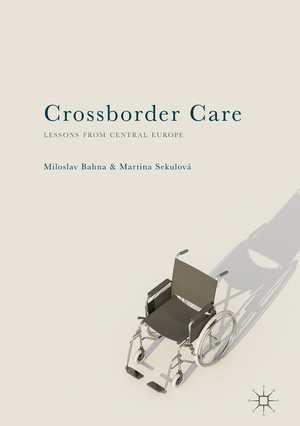Crossborder Care: Lessons from Central Europe
Autor Miloslav Bahna, Martina Sekulováen Limba Engleză Hardback – 12 oct 2018
| Toate formatele și edițiile | Preț | Express |
|---|---|---|
| Paperback (1) | 319.45 lei 38-44 zile | |
| Springer International Publishing – 13 dec 2018 | 319.45 lei 38-44 zile | |
| Hardback (1) | 496.80 lei 43-57 zile | |
| Springer International Publishing – 12 oct 2018 | 496.80 lei 43-57 zile |
Preț: 496.80 lei
Preț vechi: 584.47 lei
-15% Nou
Puncte Express: 745
Preț estimativ în valută:
95.06€ • 99.50$ • 79.12£
95.06€ • 99.50$ • 79.12£
Carte tipărită la comandă
Livrare economică 31 martie-14 aprilie
Preluare comenzi: 021 569.72.76
Specificații
ISBN-13: 9783319970271
ISBN-10: 3319970275
Pagini: 250
Ilustrații: XI, 149 p. 11 illus.
Dimensiuni: 148 x 210 mm
Greutate: 0.35 kg
Ediția:1st ed. 2019
Editura: Springer International Publishing
Colecția Palgrave Macmillan
Locul publicării:Cham, Switzerland
ISBN-10: 3319970275
Pagini: 250
Ilustrații: XI, 149 p. 11 illus.
Dimensiuni: 148 x 210 mm
Greutate: 0.35 kg
Ediția:1st ed. 2019
Editura: Springer International Publishing
Colecția Palgrave Macmillan
Locul publicării:Cham, Switzerland
Cuprins
1. Introduction.- 2. Slovak Care Workers in Austria: An Overview.- 3. Care Workers as Economic Migrants.- 4. Does the Family Suffer?.- 5. Care-work and the Life Project of the Carers: Intersections between Age and Gender.- 6. Leaving Carework: Career Prospects in a Secondary Labor Market.- 7. Conclusion: Labor Migration After All?.
Notă biografică
Miloslav Bahna is a senior researcher at the Institute for Sociology of the Slovak Academy of Sciences.
Martina Sekulová is a researcher with background in anthropology and expertise in migration, gender and human rights.
Martina Sekulová is a researcher with background in anthropology and expertise in migration, gender and human rights.
Textul de pe ultima copertă
This book analyses the circular migration of care workers in Central Europe using the example of Slovak carers in 24-hour care provision for the elderly in Austria. Challenging analyses that focus primarily on care drain and care regimes, Bahna and Sekulová supplement quantitative methodology with qualitative fieldwork to demonstrate the importance of the sending country’s economic context. The authors discuss the dynamics of economic differences between Austria and its post-communist neighbors as preconditions of the crossborder care provision, bridging analyses of policy and legal frameworks with approaches from labor migration study. Even as they scrutinize the relevance of care drain-based analyses, Bahna and Sekulová bring to the fore the interplay of economic differences, social policies, gender and migration regimes with geographic proximity to study long-term impacts of care work, including an analysis of employment after care work.
Caracteristici
Provides new insights into the phenomenon of care migration beyond the typically studied cases in Central Europe Refocuses scholarship on the source or sending country of migrant care workers Uses quantitative survey methods in combination with qualitative interviews and theories of migration and labor
